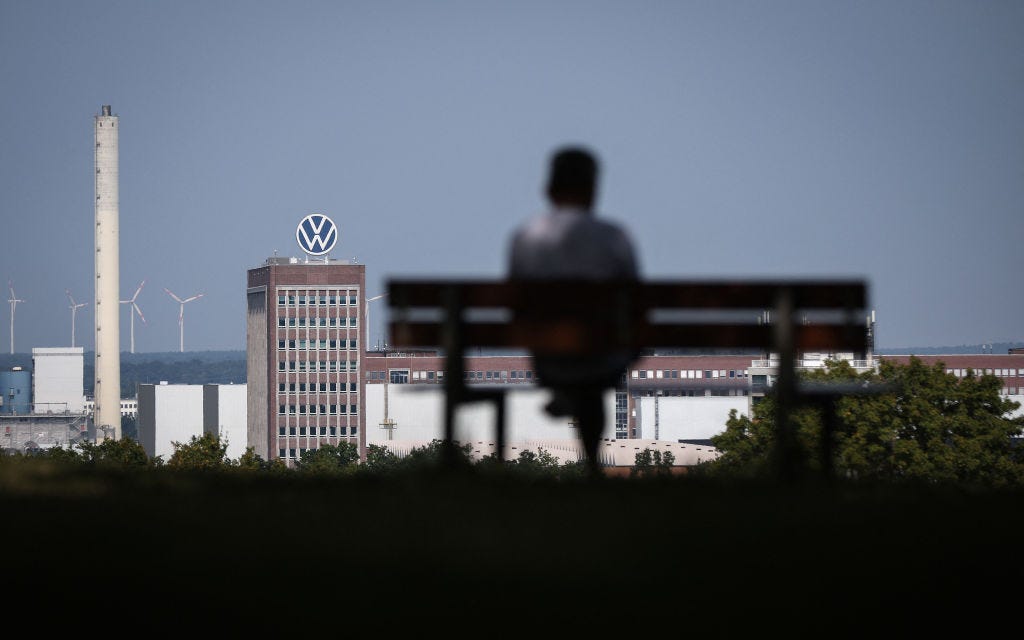Far From Grüven
The future of Germany's automotive industry is bleak.
“Failure is not fatal, but failure to change might be.” – John Wooden
Countries that bungle their energy policies can’t have nice things. Among the luxuries that eventually slip out of reach are abundance, good-paying jobs, and an effective military. That leaders in the West fail to understand this—even in the face of a steady parade of evidence that points plainly to the axiomatic nature of the statement—is one of the great mysteries of our time. Energy need not be produced domestically, but unless it can be accessed cheaply and reliably from somewhere, the fate of that economy is sealed and no amount of politicking or bureaucratic reshuffling can overcome that fact.
Part of the blame for the confusion can be apportioned to a modern economic theory that fails to differentiate energy and other critical commodities in its appraisal of gross domestic product (GDP). As our friend Luke Gromen put it in his weekly Tree Rings newsletter last Friday, “Commodity and weapons production GDP is not the same as GDP created by flipping houses back and forth to each other at ever higher prices and writing financial derivatives to bet on those housing prices.”
Consider China, a country with little in the way of oil or natural gas but an abundance of domestic coal. As described in our August Doom Zoom presentation to Pro Tier members, Year of the Dragon: China Through the Lens of Energy, the country’s leaders have played their energy cards to perfection. In addition to pursuing an all-of-the-above strategy that includes a massive buildout of hydroelectric dams, nuclear power plants, refineries, and natural gas pipelines that connect to its neighbors, China has been happy to nod along with the West’s rejection of coal while gorging on the stuff itself. If you ever wondered how China came to make almost everything you buy, here’s your answer:
At the other end of the spectrum sit major European economies like the UK and Germany. The former just celebrated the closure of its last coal plant and will soon wonder why all the steel factories left. The latter is the global capital of green energy virtue-strutting and is about to feign shock when its energy-hungry domestic automotive sector withers into irrelevance. To wit:
“Volkswagen AG cast its least-profitable quarter in years as cause for the first factory closures in Germany in its 87-year history, setting the stage for contentious negotiations with labor leaders. Operating profit plunged 42% to €2.86 billion ($3.1 billion) in the third quarter, with revenue also slipping from a year ago, Volkswagen said Wednesday. Its operating margin dwindled to just 3.6%, the lowest in over four years.
The results buttress Volkswagen management’s case for taking drastic measures in Germany, where union representatives are resisting the closing of at least three factories and the elimination of thousands of jobs. The company is also looking to reduce wages for around 140,000 workers by 10%, all of which would add to the woes of Europe’s largest economy.”
That an iconic symbol of German heavy industry is teetering on the edge of crisis is hardly surprising, and Germany is just beginning to face the consequences of a lost energy decade. Across all the dimensions that matter to the automotive sector—whether energy, labor flexibility, or willingness to usurp intellectual property norms—the Chinese are pressing their advantages to the maximum. What will remain of the much-vaunted German car industry in five years? Let’s analyze where things are headed and ponder what needs to be done to avoid catastrophe.



